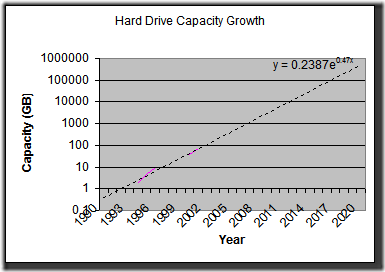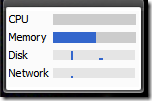Power. Electricity. The Holy Grail of modern technology.
I say this because the information revolution completely depends on electricity, whether it’s batteries, hybrid motors, or the grid. Everything we do depends on converting some naturally occurring resource into power to drive our lives.
I was thinking about power recently while watching an episode of Star Trek: The Next Generation. Everything they do depends on an infinite (or nearly so) source of energy. Their warp core powers the ship for a 20-year mission. Each device they have is self-powered. From what? Do they need recharging? I imagine not, but it’s been a while since I’ve read the technical manual.
In any case, much of that world (and other Sci-Fi worlds) depends on powerful, long-lasting, disconnected energy sources. For one example, think of the energy required to power a laser-based weapon. And it has to fire more than once.
The truth is that having such a power source is more than world-changing. It has the potential to completely rebuild society from the ground up. If you think about it, much of the world’s conflict is over sources of energy. Authority and power is derived from who controls the resources. If energy was infinitely available, it would be infinitely cheap (at least in some sense). I almost think it would change society from being so focused on worldly gain, to more on pursuit of knowledge, enlightenment, and improvement. We wouldn’t have to worry about how to get from one place to another, or who has more oil, or what industries to invest energy resources in. So much would come free.
When I speak of “infinite” power, don’t take it literally. What I mean is “So much to be practically unlimited.”
Of course there are different types of infinities:
- Infinite magnitude – Can produce any amount of power you desire. Not very likely. Something like this would be dangerous. “Ok, now I want Death Star phasers. ok. Go.” Boom.
- Infinite supply – There’s a maximum magnitude in the amount of power it can generate, but it can continue “forever” (or at least a reasonable approximation of forever). This is the useful one.
And there are a few other requirements we should consider:
- Non-destructive. Environment. Mankind, etc.
- Highly-efficient.
- Contained and controlled. Obvious.
- Portable. Sometimes microscopically so.
It’s nice to dream about such things…
- Cell phones and Laptops that never need recharged
- Tiny devices everywhere that never need an external power source (GPS, sensors, communications devices, robots, etc.)
- Cars that do not fuel. Ever. We’d probably keep them a lot longer. They could do more, be larger, more efficient, faster, safer.
- Vehicles that can expand the boundaries of their current form. How big can you make an airplane if you don’t have to worry about using up all its fuel? (not to mention the weight)
- Easier to get things into orbit–space program suddenly becomes much more interesting. Maybe we can develop engines that produce enough power to escape gravity, without using propellant (a truly ancient technology).
- Devices that can act more intelligently, and just do more than current devices. Think if your iPod that turns itself off after a few minutes of not using it. That scenario would be a thing of the past.
With such a power source the energy economy of devices that we have to pay such close attention to now goes out the window. Who cares how much energy it uses if there’s an endless amount to go around (and since we’ve already established that the energy source is non-destructive and highly-efficient, environmental factors don’t enter in). There would be no need for efficiency until you started bumping up the boundaries of how much power you needed.

